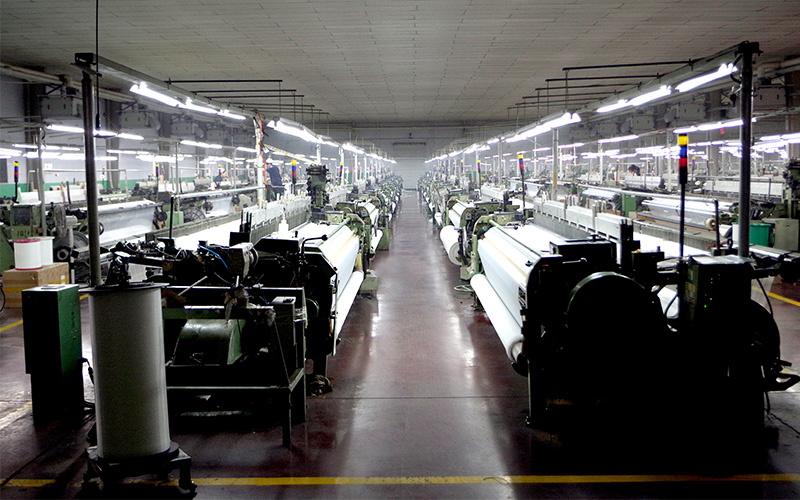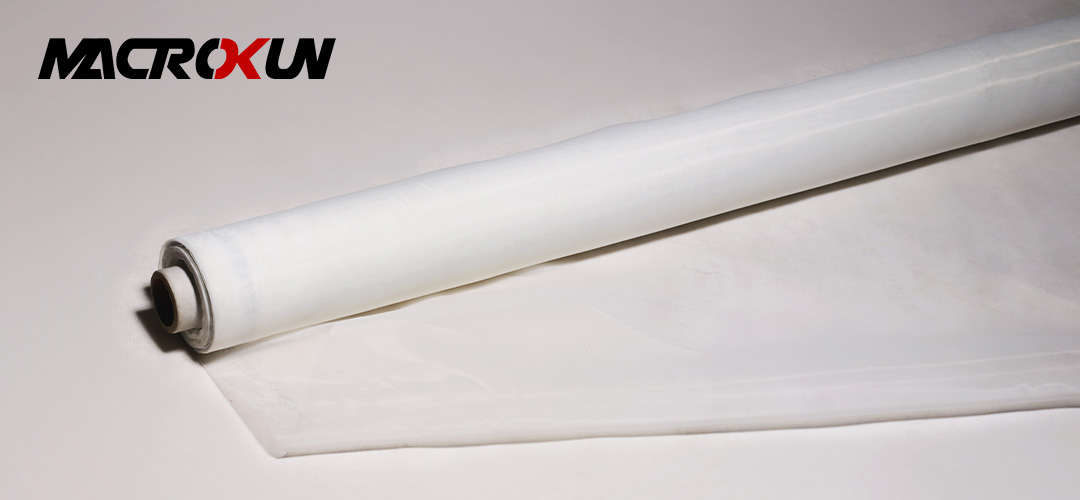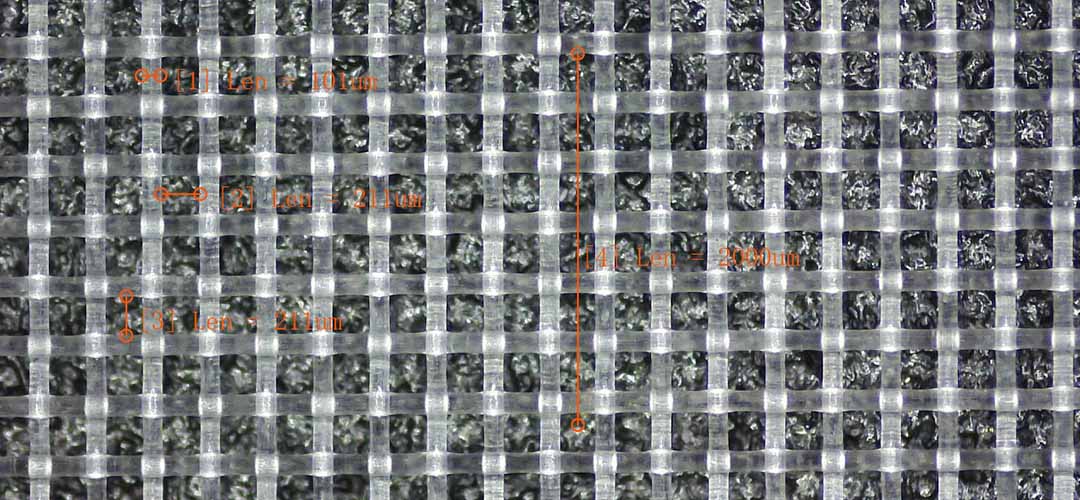Nylon filter mesh is a versatile and highly effective material used in a wide range of industries for high precision filtration. Its unique properties make it an ideal choice for applications where fine particles need to be separated from liquids or gases. In this article, we will explore the science behind nylon filter mesh and the benefits of using it for high precision filtration.
Nylon filter mesh is made from synthetic polymers that are woven together to create a mesh-like structure. The material is known for its high tensile strength, durability, and resistance to chemicals and abrasion. These properties make nylon filter mesh an excellent choice for applications where the filter needs to withstand harsh conditions and frequent use.
One of the key advantages of nylon filter mesh is its ability to provide high precision filtration. The mesh is available in a wide range of pore sizes, allowing for the filtration of particles as small as a few microns. This level of precision is essential in industries such as pharmaceuticals, food and beverage, and electronics, where even the smallest contaminants can have a significant impact on product quality.
In addition to its high precision filtration capabilities, nylon filter mesh is also known for its excellent flow rates. The open weave structure of the mesh allows for efficient flow of liquids or gases through the filter, ensuring that the filtration process is fast and effective. This is particularly important in applications where time is of the essence, such as in manufacturing processes or laboratory testing.
Another benefit of using nylon filter mesh is its versatility. The material can be easily customized to meet the specific requirements of different applications, including different pore sizes, thicknesses, and weave patterns. This flexibility makes nylon filter mesh suitable for a wide range of filtration tasks, from removing fine particles from liquids to separating gases in industrial processes.
Furthermore, nylon filter mesh is easy to clean and maintain, making it a cost-effective choice for high precision filtration. The material can be washed with water or solvent to remove trapped particles, and it can be reused multiple times without losing its filtration efficiency. This not only reduces the need for frequent filter replacements but also helps to minimize downtime and maintenance costs.
In conclusion, nylon filter mesh is a highly effective material for high precision filtration due to its unique properties and versatility. Its ability to provide fine filtration of particles, high flow rates, and ease of maintenance make it an ideal choice for a wide range of industries. Whether you are looking to remove contaminants from liquids or gases, nylon filter mesh offers a reliable and cost-effective solution for your filtration needs.
Nylon filter mesh is a widely used material in various industries for high precision filtration. Its effectiveness lies in its unique structure and properties, which allow it to efficiently separate particles of different sizes. Understanding the science behind nylon filter mesh can help us appreciate its role in achieving high precision filtration.
Nylon filter mesh is made from synthetic fibers that are woven together to form a mesh-like structure. The weaving process involves interlacing the fibers in a specific pattern, creating tiny openings or pores in the mesh. These pores are crucial for filtration as they determine the size of particles that can pass through the mesh.
The size of the pores in nylon filter mesh is measured in microns. A micron is equivalent to one-millionth of a meter, making it an incredibly small unit of measurement. Nylon filter mesh is available in a range of micron sizes, allowing for precise filtration based on the desired application.
The filtration process begins when a fluid or gas containing particles is passed through the nylon filter mesh. As the fluid flows through the mesh, particles larger than the size of the pores are trapped on the surface of the mesh. Smaller particles, on the other hand, can pass through the pores and continue downstream.
The efficiency of nylon filter mesh in capturing particles depends on the size of the pores. If the pores are too large, smaller particles may escape filtration, compromising the precision of the process. Conversely, if the pores are too small, the flow rate of the fluid may be significantly reduced, leading to inefficient filtration.
To achieve high precision filtration, it is essential to select the appropriate micron size of nylon filter mesh. This decision is based on the size of the particles that need to be captured. For example, in industries such as pharmaceuticals or electronics, where even the tiniest particles can have a significant impact, a finer micron size is preferred.
Another factor that contributes to the effectiveness of nylon filter mesh is its durability. The synthetic fibers used in its construction are known for their strength and resistance to wear and tear. This durability ensures that the mesh can withstand the pressure and flow rates of fluids without getting damaged or losing its filtration capabilities.
Furthermore, nylon filter mesh is chemically inert, meaning it does not react with most substances. This property is crucial in applications where the filtered fluid or gas may contain corrosive or reactive elements. The chemically inert nature of nylon filter mesh ensures that it does not contaminate the filtered material or react with it, maintaining the integrity of the filtration process.
In conclusion, the science behind nylon filter mesh revolves around its unique structure and properties. The interlaced synthetic fibers create pores of specific sizes, allowing for high precision filtration. The selection of the appropriate micron size is crucial to achieve the desired level of filtration. Additionally, the durability and chemical inertness of nylon filter mesh contribute to its effectiveness in various industries. Understanding the science behind nylon filter mesh helps us appreciate its role in achieving high precision filtration and its importance in ensuring the quality and purity of filtered materials.
Nylon filter mesh is a popular choice for high precision filtration in various industries due to its unique properties and performance. When compared to other filter materials, nylon filter mesh stands out for its durability, flexibility, and efficiency in capturing particles of different sizes. In this article, we will explore the science behind nylon filter mesh and how it compares to other filter materials for high precision filtration.
Nylon filter mesh is made from synthetic polymers that are woven together to create a mesh structure with uniform openings. This allows for precise filtration of particles based on their size, ensuring that only the desired particles pass through while larger particles are trapped. The flexibility of nylon filter mesh allows it to conform to different shapes and sizes, making it ideal for a wide range of filtration applications.
One of the key advantages of nylon filter mesh is its durability. Nylon is a strong and resilient material that can withstand high temperatures and pressures without losing its filtration efficiency. This makes nylon filter mesh suitable for demanding filtration processes where other filter materials may degrade or break down over time.
In addition to its durability, nylon filter mesh is also known for its high efficiency in capturing particles. The uniform openings in the mesh allow for precise filtration of particles based on their size, ensuring that even the smallest particles are captured. This makes nylon filter mesh ideal for applications where high precision filtration is required, such as in the pharmaceutical and food industries.

When compared to other filter materials, such as stainless steel or polyester, nylon filter mesh offers several advantages. Stainless steel filters are known for their durability and resistance to corrosion, but they can be heavy and rigid, making them less flexible for certain applications. Polyester filters, on the other hand, are lightweight and flexible, but they may not offer the same level of precision filtration as nylon filter mesh.
Nylon filter mesh strikes a balance between durability, flexibility, and efficiency, making it a versatile choice for high precision filtration. Its ability to capture particles of different sizes with high accuracy makes it ideal for a wide range of applications, from water treatment to chemical processing.

In conclusion, the science behind nylon filter mesh lies in its unique properties and performance in high precision filtration. When compared to other filter materials, nylon filter mesh stands out for its durability, flexibility, and efficiency in capturing particles of different sizes. Whether you are looking for a filter material for pharmaceutical, food, or industrial applications, nylon filter mesh offers a reliable and effective solution for your filtration needs.
Nylon filter mesh is a popular choice for high precision filtration in various industries due to its durability, flexibility, and chemical resistance. When selecting a nylon filter mesh for your specific filtration needs, there are several factors to consider to ensure optimal performance and efficiency.
One of the key factors to consider when choosing a nylon filter mesh is the mesh size. The mesh size refers to the number of openings per inch in the mesh screen. A higher mesh count indicates a finer mesh size, which is ideal for capturing smaller particles. For applications that require high precision filtration, such as in the pharmaceutical or food and beverage industries, a finer mesh size is essential to ensure the removal of contaminants and impurities.
Another important factor to consider is the mesh weave type. Nylon filter meshes are available in various weave patterns, including plain weave, twill weave, and Dutch weave. Each weave type offers different filtration properties, such as flow rate, particle retention, and strength. For applications that require high flow rates and efficient particle retention, a plain weave nylon filter mesh is often the preferred choice. On the other hand, a Dutch weave nylon filter mesh is ideal for applications that require superior particle retention and minimal flow resistance.
In addition to mesh size and weave type, the material of the nylon filter mesh is also a crucial factor to consider. Nylon filter meshes are typically made from polyamide, a synthetic polymer known for its excellent chemical resistance and thermal stability. Polyamide nylon filter meshes are resistant to a wide range of chemicals, making them suitable for filtration applications in harsh environments. When selecting a nylon filter mesh, it is important to choose a material that is compatible with the specific chemicals and temperatures present in your filtration process.
Furthermore, the construction of the nylon filter mesh plays a significant role in its filtration performance. Nylon filter meshes are available in monofilament and multifilament constructions. Monofilament nylon filter meshes are made from a single continuous strand of nylon, providing a smooth surface for efficient particle capture. Multifilament nylon filter meshes, on the other hand, are made from multiple strands of nylon twisted together, offering increased strength and durability. The construction of the nylon filter mesh should be chosen based on the specific filtration requirements of your application.
When selecting a nylon filter mesh for high precision filtration, it is essential to consider the micron rating of the mesh. The micron rating refers to the size of the particles that the mesh can capture, with a lower micron rating indicating a finer filtration capability. For applications that require the removal of sub-micron particles, such as in the semiconductor or electronics industries, a nylon filter mesh with a low micron rating is necessary to achieve the desired level of filtration efficiency.

In conclusion, choosing the right nylon filter mesh for high precision filtration involves considering factors such as mesh size, weave type, material, construction, and micron rating. By carefully evaluating these factors and selecting a nylon filter mesh that meets your specific filtration requirements, you can ensure optimal performance and efficiency in your filtration process. Nylon filter meshes are versatile and reliable filtration solutions that can provide high precision filtration in a wide range of industries.
Next: A Comprehensive Guide to Choosing the Right Nylon Mesh for Your Project

MACROKUN has established long-term and stable cooperative relations with many transportation companies such as China Post, DHL, FEDEX, USPS, UPS, etc. Of course, MACROKUN can also provide air and sea transportation. The powerful logistics system enables all MACROKUN'S Printing Mesh, Filter Mesh and Filter Bags and so on to be easily and efficiently transported to any place. For quotes and inquiries, please email our sales team.





